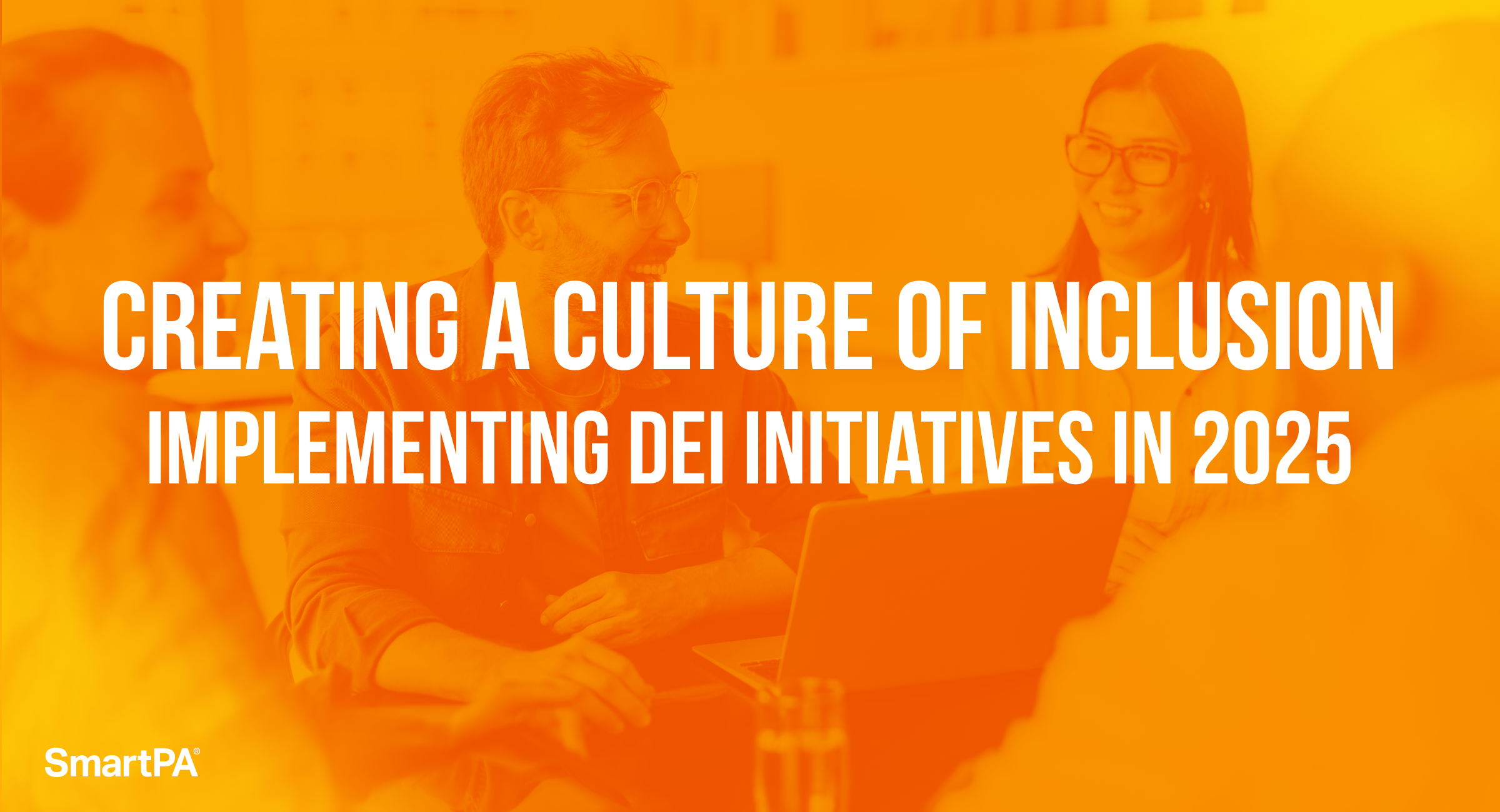With April 2nd marking World Autism Awareness Day, it's a timely opportunity to reflect on the importance of fostering inclusive environments where neurodivergent individuals can thrive. However, building an inclusive workplace isn’t just about one day—it requires continuous commitment and meaningful action.
Neurodiversity refers to the natural variations in how people think, learn, and process information, encompassing conditions such as autism, ADHD, dyslexia, and dyspraxia. Inclusive workplaces don’t just benefit neurodivergent individuals; they drive innovation, increase employee satisfaction, and enhance overall business performance.
So, how can organisations build a culture of inclusion and implement meaningful DEI initiatives in 2025 and beyond? Read on to discover five key steps to enhancing neurodiversity inclusion in your workplace.
Why Neurodiversity Matters in the Workplace
Neurodiverse teams bring unique perspectives, problem-solving approaches, and creative thinking that can give businesses a competitive edge. Studies have shown that companies with strong diversity and inclusion policies perform better financially, experience lower turnover rates, and foster more engaged workforces.
Yet, neurodivergent professionals still face significant barriers. According to research, many struggle to secure employment due to hiring processes that favour neurotypical traits, while those in jobs often lack the necessary workplace accommodations.
- 1 in 7 people (more than 15%) of the UK population are neurodivergent.
- According to Autistica’s Neurodiversity Employers Index, only 30% of UK organisations have a clear neuroinclusion goal and strategy in place.
By prioritising neurodiversity, organisations can not only tap into an underutilised talent pool but also create environments where all employees feel valued and empowered.
5 Key Steps to Enhancing Neurodiversity Inclusion
1. Create Neurodivergent-Friendly Hiring Practices
Traditional hiring processes often disadvantage neurodivergent candidates. Businesses should:
- Remove unnecessary criteria from job descriptions that may exclude neurodivergent applicants (e.g., “must be an excellent verbal communicator”).
- Offer alternative interview formats, such as skill-based assessments or written tasks instead of traditional Q&A interviews.
- Provide clear and structured interview questions in advance to support neurodivergent candidates in preparing effectively.
2. Provide Workplace Adjustments
Workplace adjustments can significantly impact productivity and wellbeing. Consider:
- Offering remote or hybrid working options to accommodate different working styles.
- Designing sensory-friendly office spaces, such as quiet rooms or noise-cancelling headphones.
- Allowing flexible work hours to support employees who may experience fluctuating energy levels or concentration patterns.
3. Educate Managers and Teams
Educating employees and leadership teams is crucial for fostering an inclusive culture. Effective strategies include:
- Providing neurodiversity training to reduce stigma and unconscious bias.
- Encouraging peer support networks or employee resource groups.
- Engaging neurodivergent employees in shaping company policies to ensure they meet real needs.

"Training your team on neurodiversity is no longer optional—it’s the future of truly inclusive workplaces. Any organisation that claims to be people-led must ensure that all their people feel understood, valued, and supported. Without this, inclusion is just a buzzword. If we want teams to thrive, we must equip them with the knowledge and confidence to create environments where neurodivergent individuals can do their best work—not just fit in, but truly belong."
Vic Metcalf, Learning & Development Manager at SmartPA
4. Establish Employee Support Networks
Support networks play a vital role in creating an inclusive workplace. Businesses should:
- Create Employee Resource Groups (ERGs) for neurodivergent employees to share experiences and advocate for change.
- Provide mentorship programs to support career development.
- Ensure confidential, accessible channels for employees to request workplace adjustments and support.
5. Embed DEI Into Organisational Culture
Inclusion should be embedded into every aspect of a business rather than treated as a standalone initiative. Organisations can:
- Regularly review and adapt DEI policies based on employee feedback.
- Collaborate with neurodivergent professionals to co-create inclusive workplace strategies.
- Move beyond legal compliance and strive for genuine inclusivity in all aspects of the business.
Moving Forward in 2025 and Beyond
Neurodiversity inclusion is not a one-time initiative—it requires ongoing commitment. To embed meaningful change, businesses should:
- Make DEI a leadership priority, ensuring senior leaders actively support inclusion efforts.
- Implement ongoing training and education to keep awareness high across all levels of the organisation.
- Foster a culture of open dialogue where neurodivergent employees feel comfortable sharing their experiences and needs.
Companies leading the way in neurodiversity inclusion will not only attract top talent but also create cultures of belonging, innovation, and sustained success.
Final Thoughts
As we observe World Autism Awareness Day, let’s shift the conversation from awareness to action. Businesses must take responsibility for shaping workplaces that truly support and empower neurodivergent employees.
What steps is your organisation taking to build a more inclusive future? The time for change is now. Let’s make 2025 the year we prioritise neurodiversity and create work environments where everyone can thrive.
About SmartPA
SmartPA leads the transformation of admin and business support services through technology and education, while our mission is to unleash potential by supporting young people and women to become business role models for future generations. Powered by a global team of passionate and accredited SmartPAs, we accelerate the success of over 5,000 businesses worldwide, delivering impactful outsourced support that allows organisations to focus on what they do best. With a Centre of Excellence in the UK, near shore hubs in South Africa and Uganda, and an offshore hub in Malaysia, we are dedicated to making a difference.
Find out more
Click here to find out more about how partnering with SmartPA can help accelerate growth within your organisation. Empower your leaders today by contacting us to discuss your requirements.
